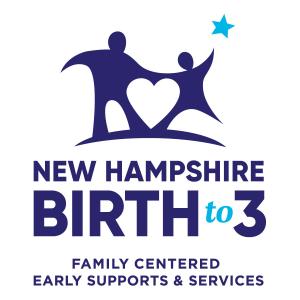Family-Centered Early Supports and Services
The Family-Centered Early Supports and Services (FCESS) program provides support and assistance to families of infants and young children (birth to 3), who have an established condition, developmental delay, or are at risk of delay. The program is designed to empower families to meet their child’s unique physical, health, developmental, and environmental needs. We are committed to providing children and families in Carroll, Coos and Upper Grafton counties with exceptional early intervention services and care coordination.
Anyone can make a referral – parents/guardians, friends, relatives, medical doctor, child care provider –anyone who is familiar with the child. If you know of a child in Carroll County, Upper Grafton and Coos County who may benefit from an early childhood screening, developmental evaluation and/or early intervention services, please reach out to learn more.
We understand that it can be very scary and intimidating learning about developmental disabilities and established conditions, finding and obtaining specific services, and advocating for the needs of your child. Our program is designed to be family-centered and works around your schedule and family needs. Learn more about developmental milestones.
Services
- Screening and assessment for developmental milestones
- Evaluations and consultation
- Service coordination
- Family support
- Home-based support by developmental specialists, speech pathologists, occupational and physical therapists
Eligibility
In order to qualify for Family Centered Early Supports & Services (FCESS), as outlined by New Hampshire statute He-M510.1 governing this program, a child must meet one or more of the following criteria:
1. A developmental delay of 33% in one or more of the following areas:
- Cognitive development
- Communication development
- Social, emotional, behavioral development
- Fine and/or gross motor development
- Adaptive development
2. Established condition
- The child is diagnosed with a physical or mental condition that is likely to result in a developmental delay.
- Examples include: genetic disorders, metabolic disorders, congenital malformations, infectious diseases, neurological disorders, severe attachment disorders, autism spectrum disorders, toxic exposures.
3. At-risk for substantial developmental delay
- A child can be eligible if five or more at-risk factors apply (as a result of the environment or related to birth).
FCESS-NHS will review information from the family, referral source, medical records, and the eligibility initial assessment to determine if a child meets eligibility criteria. Once a child is eligible, FCESS will work with the child and family and may conduct annual evaluations to determine if the child continues to be eligible. Continuous progress monitoring of the child’s skills will occur and the family will receive continual feedback.
Assessments
As required by the State, NHS-FCESS conducts a formal assessment using the Infant Toddler Development Assessment (IDA). Two licensed evaluators from the program observe and interact with the child using play-based methodologies to assess the level of age-appropriate skills in the following areas: gross motor, fine motor, cognitive, language/communication, self-help, relationship to people, emotions and feelings and coping/behavior. The assessment typically lasts about an hour and is conducted in the family’s home (unless otherwise requested by the family). Parents participate in the assessment providing critical information regarding their child’s skills, personality, likes, dislikes, strengths, etc.
At the end of the assessment, if a child is eligible for services, the team will work together to create an individual family support plan (IFSP). If the child is not eligible, the assessment team will discuss strategies and tools that focus on child development as well as local community resources. At any point in the future, a family may call FCESS for a follow-up referral and evaluation. For eligible children, an annual assessment may be conducted by a multi-disciplinary team at least one time per year; however, at times the multidisciplinary team may decide to conduct specialized consults or more than one assessment to ascertain how a child is progressing in a particular skill area.
Individual Family Support Plan (IFSP)
An Individual Family Support Plan is a legal document developed by parents/guardians,ESS staff and other collaborating stakeholders. The plan identifies outcomes for the child and family, based on the child and family’s needs and priorities. IFSPs are reviewed, at minimum, every six months, and the plan is updated to reflect current skill levels based on a eligibility re-evaluation using the IDA and possibly other informal assessment tools as prescribed by specific clinicians involved with the child.
FCESS utilizes the current NH Early Learning Guidelines to develop many child and family outcomes and uses this guide as a resource for discussion and progress monitoring.
View/download the FCESS Information Sheet.
For more information or to schedule an intake:
Family-Centered Early Supports & Services
71 Hobbs Street, Suite 102
Conway, NH 03818
603.447.8047
kwillett@northernhs.org

